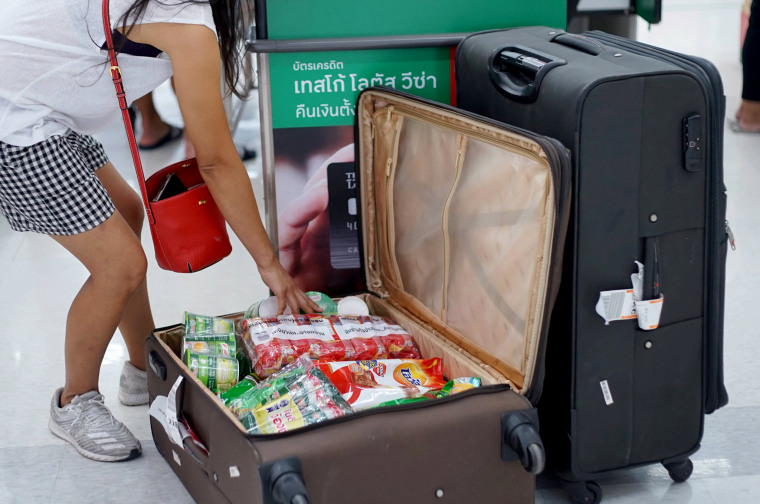Thai shoppers are finding innovative ways to carry their groceries after a plastic bag ban was instituted in the Southeast Asian country.
From wheelbarrows to hampers to suitcases, many have taken to social media to post pictures of their efforts to comply with the plastic bag initiative, which was introduced at the start of the year in an attempt to curb environmental waste.
In accordance with the ban, major retailers like 7-Eleven are no longer supplying single-use plastic bags. A country-wide plastic bag ban is anticipated in 2021, according to Reuters.
According to a viral Facebook album with more than 70 pictures, a number of shoppers have replaced the plastic bags with conventional cloth tote bags. Yet, adapting to the plastic bag ban has almost become a game for other Thai shoppers, the winner being the one who can devise the most unorthodox way of carrying groceries out of the store.
"People always find a way to be silly and have fun, but I didn't expect for it to go viral," Pimvipar Upatampaganon, an artist based in Bangkok, wrote in a message to NBC News.
Among the most nontraditional methods of carting merchandise included attaching chips to clothes hangers and using traffic cones to store food. Others used vases, buckets, pots, baskets and even their own shirts.
Thailand's rapid economic growth has led to environmental degradation, including the loss of wildlife populations, deforestation and water and air pollution, and much like the rest of the world, the country has not been immune to the effects of climate change.
It was the picture of a dead deer found with plastic bags in its stomach last year that brought renewed public attention to the detrimental effects such bags can have on the environment.
According to the environmental group Greenpeace, about 75 billion pieces of plastic bags end up in the waste each year in Thailand and such bags compose the nearly 2 million tons of plastic waste produced each year by Thai consumers.
While some individual stores had already made plans to decrease plastic bag waste, the ban is considered a larger victory by environmentalists.
Some say the Thai plastic bag ban is not enough and that the government should do more to preserve the environment and address climate change, however.
"Even if we reduce plastic bag use, it's only by a little, as long as corporations are still spewing toxic fumes into the air and polluting the sea because they want those dinosaur juice oil, then it's not gonna be enough in the long run," Upatampaganon said.

